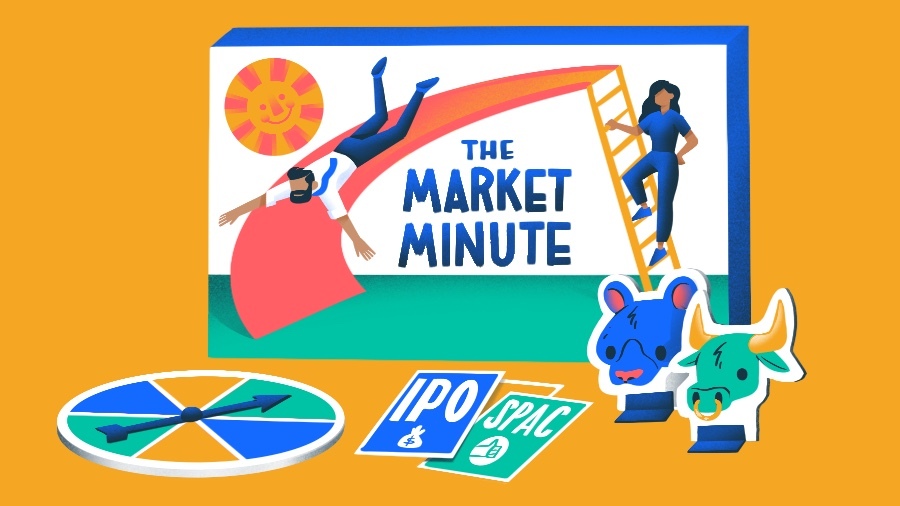When a company goes public, it’s generally intended to be a permanent move. But sometimes, a business’ time on the public markets is short-lived.
Subscribe to the Crunchbase Daily
That’s the case for a couple of venture-backed companies that went public in 2020 and 2021. They’re not alone—and there could be more companies delisting as large companies flush with cash look to make acquisitions.
Didi and Casper–two of the most recent newly public companies to announce their plans to delist from the major stock exchanges–join a group of about 20 VC-backed companies that didn’t last at least two years on the public markets. Some were bought out by private equity firms while others, like Mulesoft, were acquired by other public companies.
I started thinking about this a few weeks ago, when news broke that the private equity firm Durational Capital Management was buying the trendy mattress company Casper–which went public less than two years ago.
Not long after, Chinese ride-hailing company DiDi Chuxing said it would delist from the New York Stock Exchange, less than six months after its IPO. The Chinese government cracked down to regulate Didi’s operations soon after it went public, driving down the company’ stock price.
For the purposes of this story, I looked at venture-backed companies that went public between 2011 and 2021 and listed on the New York Stock Exchange or Nasdaq. I didn’t include companies in the biotech sector.
Companies are generally delisted for three reasons, according to Josef Schuster, founder of IPOX Schuster, which offers financial services related to new listings. A public company is usually delisted because of negative performance, a takeover by a larger company, or because of political forces, like in the case of Didi.
A growing area, according to Schuster, is publicly traded companies delisting after being taken over by another large public company. Some recent examples include Salesforce 1buying Slack, both of which traded on the New York Stock Exchange, and Square buying AfterPay, which was publicly traded in Australia.
“There’s going to be a big wave of M&A happening as large companies have lots of cash and look for targets,” Schuster said.
Some of the shortest-lived venture-backed public companies of the past decade:
Kayak (10 months)
- IPO date: July 20, 2012
- Delisted date: May 21, 2013
- Acquired by Booking Holdings
Mulesoft (1 year)
- IPO date: March 18, 2017
- Delisted date: March 20, 2018
- Acquired by Salesforce
Tintri (13 months)
- IPO date: June 30, 2017
- Delisted date: July 9, 2018
- Acquired by DataDirect Networks
Yodlee (13 months)
- IPO date: Oct. 6, 2014
- Delisted date: Nov. 19, 2015
- Acquired by Envestnet
The “wave” of expected public company consolidation extends across sectors ranging from biotech to consumer companies, Schuster said.
“The buyout market for these types of companies, I think, will definitely be increasing the activity,” he said.
Didi’s case was “extraordinary,” according to Schuster. The Chinese government ordered the company to stop onboarding new users soon after its IPO, then pushed didi’s ride hailing app off of mobile app stores, stunting the company’s growth and driving down its stock price. Facing pressure from the Chinese government, Didi opted to delist with plans to go public again on the Hong Kong stock exchange.
Casper’s case likely falls under the category of negative performance, as the company saw its valuation slashed as it went public, and its stock price has mainly been down ever since.
Generally speaking, when a private equity firm buys out a public company, it’s because the PE firm can get cheap financing and they see value in the company, according to Patrick Healey, president and founder of Caliber Financial Partners. “It’s going to be a company or situation specific scenario,” Healey said of PE buyouts.
“If a PE firm sees a lot of value in a company and they think the market price is disconnected from the intrinsic value, they may make a bid,” he said.
PE firms aren’t chasing valuations and tend to hold their investments for a while. For that reason, it’s not likely to see PE firms “step in when the market’s going gangbusters like it was in January, February,” Healey said.
“I think a savvy PE firm, most of them are the successful ones, they have time to wait,” he said. “ Their investor base tends to be more patient than the public markets.”
Illustration: Dom Guzman

Stay up to date with recent funding rounds, acquisitions, and more with the Crunchbase Daily.



![Illustration of a guy watering plants with a blocked hose - Global [Dom Guzman]](https://news.crunchbase.com/wp-content/uploads/quarterly-global-3-300x168.jpg)
67.1K Followers